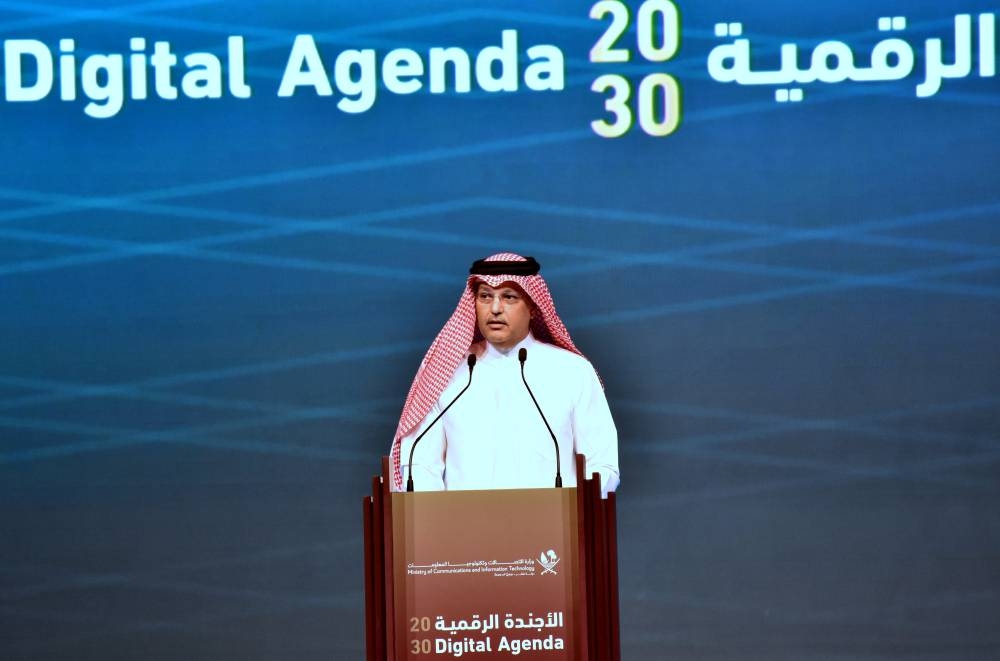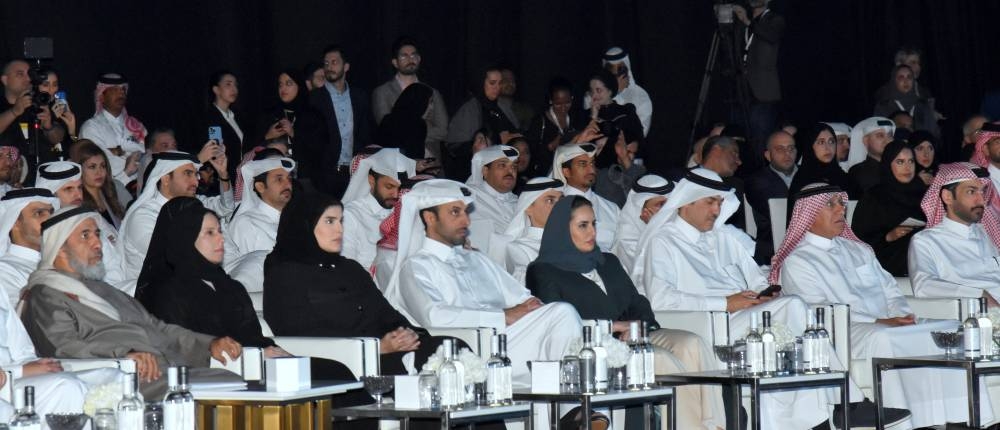The Ministry of Communications and Information Technology (MCIT) unveiled the ambitious Digital Agenda 2030 Tuesday, aiming to unleash a ripple effect valued at around QR40bn and generate more than 26,000 new job opportunities by 2030.
Speaking at the event, HE the Minister of Communications and Information Technology Mohammed bin Ali al-Mannai,said: “Digital Agenda 2030 will serve as our guiding compass towards establishing a robust digital economy and shaping a future brimming with innovation and progress.
“This future will lay the basis for a knowledge-based society and set an inspiring example for generations to come,” he stressed.
The debut of Digital Agenda 2030, under the patronage of HE the Prime Minister and Minister of Foreign Affairs Sheikh Mohammed bin Abdulrahman bin Jassim al-Thani, marks a crucial step in Qatar’s comprehensive digital evolution.
The Minister highlighted the initiative’s six strategic pillars: Digital Infrastructure, Digital Government, Digital Technology, Digital Innovation, Digital Economy, and Digital Society. Comprising 23 strategic programmes, it aims to transition towards a novel, diversified, and sustainable economic model.
Al-Mannai noted that these programmes are expected to strengthen the compound annual growth rate of the existing GDP to 7.8%, while enhancing the contribution of the ICT sector to the gross product, potentially achieving a rate of up to 3.5% in non-oil GDP.
“The programmes and initiatives shaped by the Digital Agenda 2030 carry the potential to generate comprehensive positive impacts across various sectors of the national economy, spanning from industry to energy, tourism, logistics, financial services, and education,” the Minister said.
HE al-Mannai underlined MCIT’s commitment to shaping Qatar’s digital landscape aimed at keeping pace with global digital advancements. He said: “With the introduction of our Digital Agenda 2030, we are actively positioning ourselves to lead the digital age. Success hinges on ensuring our digital society is poised to adapt to the rapid changes in the digital sphere”.
With its deployment, MCIT expects that its latest initiative will boost the efficiency of both the digital economy and society, expediting economic transformation and competitive efficiency. This is facilitated by embracing innovative digital strategies that prioritise inclusivity and foster sustainable prosperity in the digital age.
“The Digital Agenda 2030 is an integral part of the Third National Development Strategy and the goals of the Qatar National Vision 2030. This agenda seeks to lead a comprehensive shift, continue the ambitious digital transformation process, contribute to achieving sustainable national development goals, and ensure the continuation of decent living for the people of Qatar, generation after generation,” the Minister said.
According to MCIT, the Digital Agenda 2030 also aims to transform Qatar into a formidable digital player across various domains such as smart cities, e-government, cybersecurity, and emerging technologies like artificial intelligence, metaverse technology, and the Internet of Things. This transformation is poised to yield substantial economic dividends.
MCIT noted that to realize these aims, the government is dedicated to attaining advanced educational milestones, including graduating over 18% of students in science, technology, engineering, and mathematics (STEM) fields, and ramping up investment in research and development to foster innovation.

HE the Minister of Communications and Information Technology Mohammed bin Ali al-Mannai speaks at the launch event Tuesday. PICTURE: Thajudheen

A view of the dignitaries at the event. PICTURE: Thajudheen

